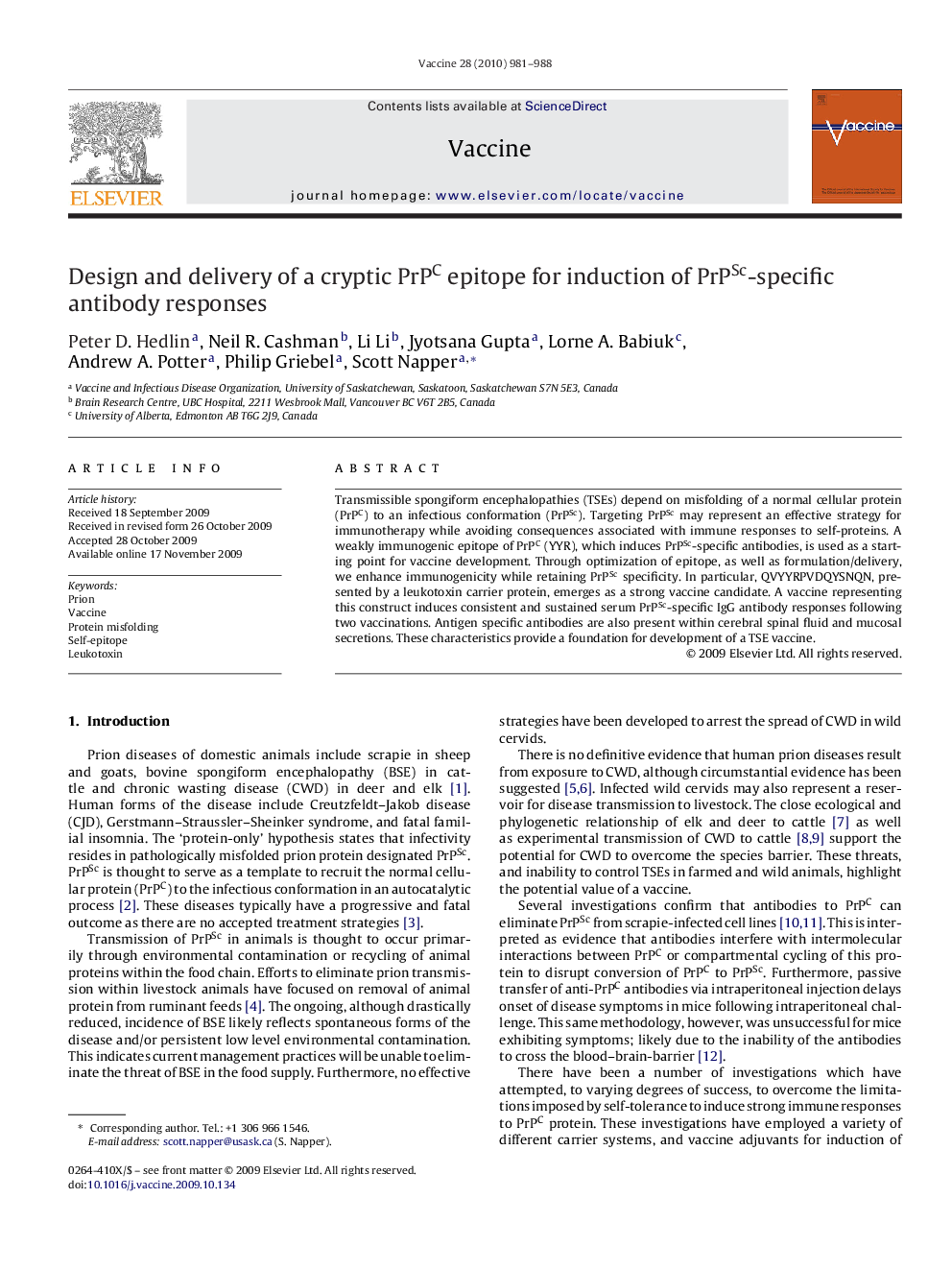| Article ID | Journal | Published Year | Pages | File Type |
|---|---|---|---|---|
| 10969881 | Vaccine | 2010 | 8 Pages |
Abstract
Transmissible spongiform encephalopathies (TSEs) depend on misfolding of a normal cellular protein (PrPC) to an infectious conformation (PrPSc). Targeting PrPSc may represent an effective strategy for immunotherapy while avoiding consequences associated with immune responses to self-proteins. A weakly immunogenic epitope of PrPC (YYR), which induces PrPSc-specific antibodies, is used as a starting point for vaccine development. Through optimization of epitope, as well as formulation/delivery, we enhance immunogenicity while retaining PrPSc specificity. In particular, QVYYRPVDQYSNQN, presented by a leukotoxin carrier protein, emerges as a strong vaccine candidate. A vaccine representing this construct induces consistent and sustained serum PrPSc-specific IgG antibody responses following two vaccinations. Antigen specific antibodies are also present within cerebral spinal fluid and mucosal secretions. These characteristics provide a foundation for development of a TSE vaccine.
Related Topics
Life Sciences
Immunology and Microbiology
Immunology
Authors
Peter D. Hedlin, Neil R. Cashman, Li Li, Jyotsana Gupta, Lorne A. Babiuk, Andrew A. Potter, Philip Griebel, Scott Napper,
